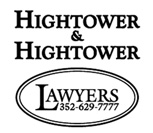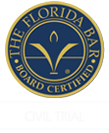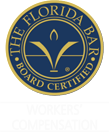FAQ’s

 Hightower & Hightower Lawyers
Hightower & Hightower LawyersOur Frequently Asked Questions section has been sorted by topic to help you get the answers you need. Click on one of the topics below to be taken to that section. As always, feel free to contact us with any questions you might have.
General Questions
AUTO ACCIDENT QUESTIONS
MOTORCYCLE ACCIDENT QUESTIONS
If the motorcycle driver is at fault, then anyone else injured or killed in the Florida motorcycle accident – including the motorcyclist’s passenger and/or people in other vehicles and their surviving family members — may pursue a lawsuit against the motorcycle operator. Any other person injured by a motorcyclist, such as a pedestrian, can recover damages against the motorcycle operator and any other responsible party.
TRUCKING ACCIDENT QUESTIONS
In addition, there are sections of the Vehicle Code applicable to trucking companies and commercial truck drivers, as well as training and licensing requirements specific for truck drivers making their defense in truck accident cases more difficult and, therefore, better for plaintiffs.
WORK ACCIDENT QUESTIONS
If retraining is not a viable option and you are unable to obtain any kind of employment, then you may be eligible for disability payments. These can be temporary, while you are still recovering from your injury, or permanent. Your entitlement to disability benefits would depend on the specific facts of your case and so the assessment must be made on a case-by-case basis.
There are limited options available and each case is different. Please contact us to discuss the options available to you.
 7 E. Silver Springs Blvd., Suite 300, Ocala, FL 34470
7 E. Silver Springs Blvd., Suite 300, Ocala, FL 34470





